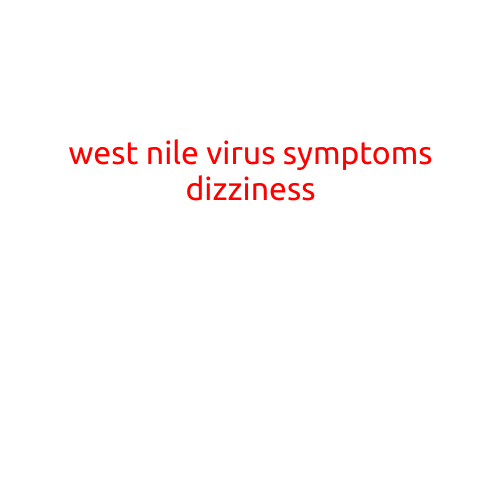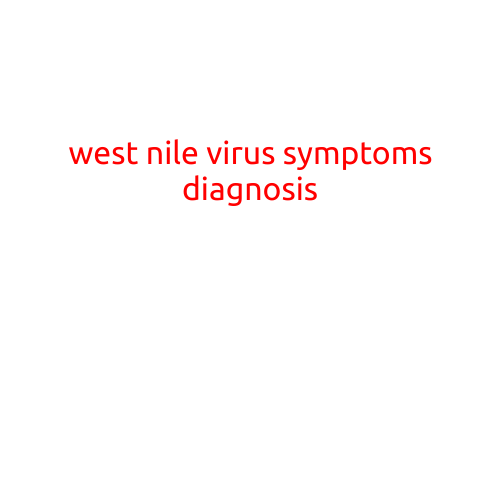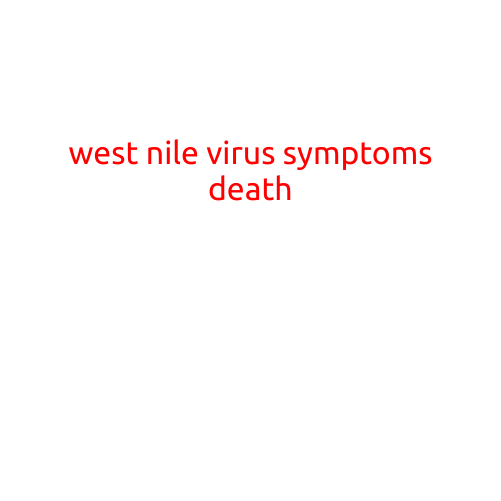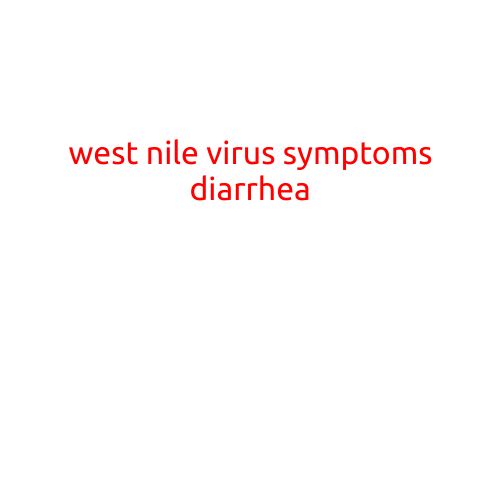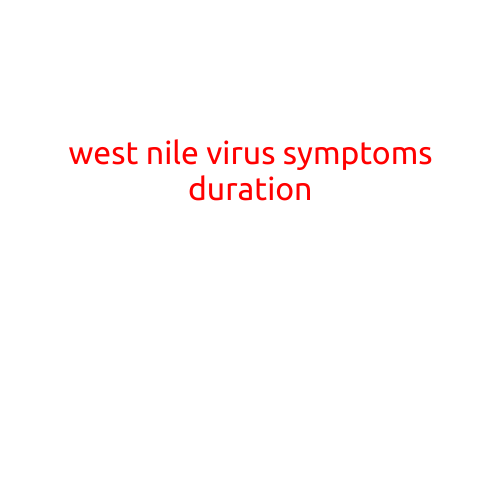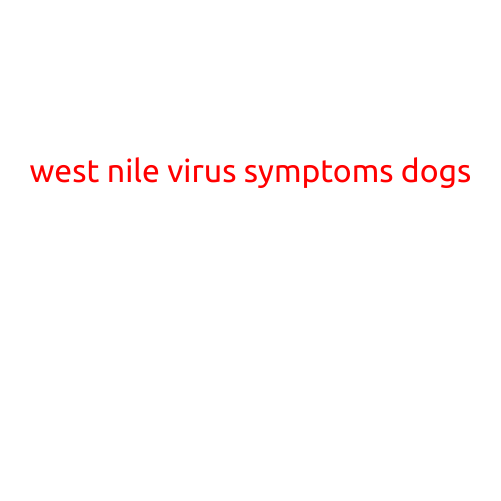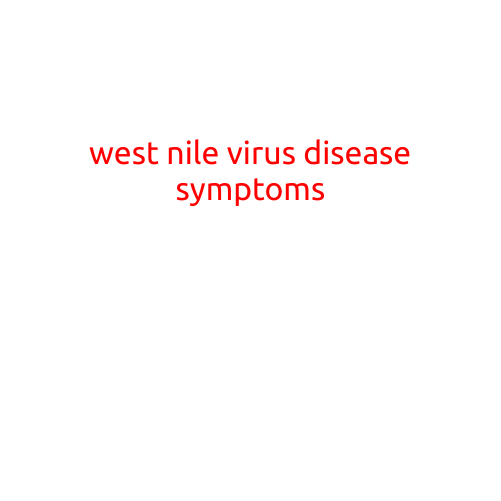
West Nile Virus Disease Symptoms
West Nile virus (WNV) is a potentially serious and sometimes life-threatening disease caused by the West Nile virus. It is a flavivirus that is transmitted to humans through the bite of an infected mosquito. The virus is most commonly found in birds and other animals, and infects humans who are in contact with these infected animals or are bitten by infected mosquitoes.
Common Symptoms of West Nile Virus Disease
The symptoms of West Nile virus disease can vary depending on the severity of the infection. In most cases, people infected with WNV experience no symptoms at all, and the infection is asymptomatic. However, in some cases, people can develop symptoms, which may include:
- Fever: A high fever is one of the most common symptoms of WNV infection. The fever may be accompanied by other symptoms such as headache, body aches, and fatigue.
- Headache: A severe headache is another common symptom of WNV infection. The headache may be accompanied by stiffness in the neck and shoulders.
- Body Aches: People infected with WNV may experience body aches, which can range from mild to severe.
- Fatigue: Fatigue, or feeling tired and weak, is a common symptom of WNV infection.
- Skin Rash: In some cases, WNV infection can cause a skin rash, which may be itchy or blistery.
- Swollen Lymph Nodes: Swollen lymph nodes, or swollen glands, are another symptom of WNV infection.
- Eye Pain: WNV infection can cause eye pain, blurred vision, or loss of vision.
- Neurological Symptoms: In severe cases, WNV infection can cause neurological symptoms such as numbness, weakness, or paralysis.
Severe Symptoms of West Nile Virus Disease
In rare cases, WNV infection can cause more severe symptoms, which may include:
- Meningitis: Inflammation of the lining of the brain and spinal cord, which can cause symptoms such as headache, stiff neck, and fever.
- Encephalitis: Inflammation of the brain, which can cause symptoms such as headache, confusion, and severe fatigue.
- Guillain-Barré Syndrome: A rare condition that affects the nerve endings, which can cause muscle weakness, numbness, and paralysis.
Complications of West Nile Virus Disease
In rare cases, WNV infection can cause serious complications, such as:
- Seizures: WNV infection can cause seizures, which can be life-threatening.
- Respiratory Failure: WNV infection can cause respiratory failure, which can be life-threatening.
- Death: In severe cases, WNV infection can be life-threatening and even fatal.
How to Prevent West Nile Virus Disease
To prevent WNV disease, it is important to take the following steps:
- Use Insect Repellent: Use insect repellent that contains DEET, picaridin, or oil of lemon eucalyptus to prevent mosquito bites.
- Wear Protective Clothing: Wear protective clothing, such as long-sleeved shirts, long pants, and closed-toe shoes, to prevent mosquito bites.
- Eliminate Breeding Sites: Eliminate breeding sites for mosquitoes, such as standing water, to prevent the spread of WNV.
- Get Tested: If you experience symptoms of WNV infection, get tested for the virus.
- Stay Informed: Stay informed about WNV outbreaks in your area and take necessary precautions to prevent infection.
Conclusion
West Nile virus disease is a serious and sometimes life-threatening disease caused by the West Nile virus. It is important to take steps to prevent infection, such as using insect repellent, wearing protective clothing, and eliminating breeding sites for mosquitoes. If you experience symptoms of WNV infection, get tested and take necessary action to prevent complications.
